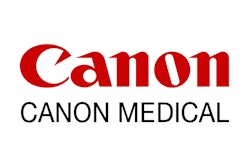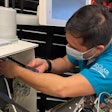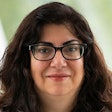The RSNA Research and Education (R&E) Foundation has awarded its 2018 Canon Medical Systems USA/RSNA Research Seed Grants and Medical Student Grants.
The research grants, made possible by Canon's support of the RSNA R&E Foundation, provide $40,000 for one-year projects to test hypotheses and obtain pilot data in preparation for major grant applications, according to the vendor.
The first winner, Dr. Pedram Heidari of Massachusetts General Hospital, will investigate a novel PET probe for imaging disease activity in inflammatory bowel disease (IBD) in mouse models. The PET probe is specific for granzyme B, which is an important marker of T-cell activation involved in pathogenies of IBD, Canon said.
The second project, by Dr. Prashant Nagpal and scientific advisor Mathews Jacob, PhD, of the University of Iowa, will investigate whether 3D self-navigated free-breathing cardiac MRI (CMR) sequences using manifold reconstruction algorithms compare well with the standard of care breath-held CMR sequences for patients with chronic obstructive pulmonary disease (COPD). If successful, this free-breathing CMR technique will enable high-quality comprehensive imaging in patients who cannot hold their breath, according to Canon.
The third project, by Dr. Adam Singer of Emory University, will compare the performance of a novel sonographic scoring and reporting system with that of MRI for soft-tissue sarcoma resection bed surveillance. If sonographic diagnostic accuracy is found to be noninferior to MRI, it could provide a more cost-effective surveillance alternative, particularly when MRI is contraindicated or degraded by artifacts, Canon said.
In addition to the research awards, the Canon Medical Systems USA/RSNA Research Medical Student Grant provides a $3,000 stipend, matched by the department for a total of $6,000, to pursue a research project in the radiologic sciences.
One winner is Brandon Kenneth-Kouso "K.K." Fields from the University of Southern California. Fields and scientific advisor Dr. George Matcuk Jr. will investigate the role of quantitative whole-tumor-volume MRI as a novel biomarker in evaluating response to neoadjuvant chemotherapy and radiation therapy in soft-tissue sarcomas. The principles developed with this project may lend new insight into early observable changes seen in this heterogeneous class of tumors to more accurately guide clinical management, Canon said.
The second winner, Anthony Yao of Rhode Island Hospital, will explore with scientific advisor Dr. Ryan McTaggart whether artificial intelligence can assist in the imaging of emergent large-vessel occlusions on CT angiograms. If successful, neural networks may be implemented to aid radiologists in decreasing diagnostic time and improving patient outcomes, Canon said.



















